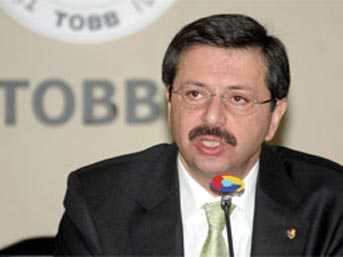* Several firms eye exploration licences, official say
* Southeastern region around Diyarbakir main prospect
* Major reserves could reduce reliance on imported energy
By Orhan Coskun and Evrim Ergin
ANKARA/ISTANBUL, Feb 18 (Reuters) – Turkey is hoping to find shale gas reserves big enough to help reduce its energy import dependency and is in talks with foreign firms about widening exploration after encouraging early signs, industry officials said on Monday.
The government is hoping that major shale gas reserves lie in basins in its southeast, east and western Thrace regions and officials say several firms, including smaller players already looking for conventional oil and gas, are keen to explore.
With domestic gas consumption rising and its geographic location meaning it is also well-placed to supply international markets, major exploitable reserves could be a game changer for Turkey’s economy and highly lucrative for whoever finds them.
“We are keen to exploit this method and we must make economic use of shale gas,” Energy Minister Taner Yildiz told Reuters, saying it would be a priority for the near future.
Shell is drilling for shale gas in the region around the southeastern city of Diyarbakir, while Canadian firm TransAtlantic Petroleum is also active in the region.
“Companies from the UK, U.S. and Canada are keen on shale gas production in Turkey,” said one senior energy ministry official, declining to be named because talks with potential partners were ongoing.
“These firms are in close contact with Turkish companies to obtain licences and to collaborate with them. They are also talking to state firms and are drawing up projections on possible sites and what can be done in the near future.”
At least one foreign company was expected to sign an agreement for shale gas exploration this year, officials said.
Estimates of how big Turkey’s shale gas reserves might be vary wildly.
One senior energy official said data from some international bodies suggested Turkey could have a massive 20 trillion cubic metres (cbm) of total reserves. Another industry expert said proven reserves so far stood at just 6-7 billion cbm.
That compares to an estimated 1.2 trillion cbm (42 trillion cubic feet), according to the U.S. Energy Information Administration, in Ukraine, where Shell signed a landmark $10 billion shale gas deal last month.
“At present it is not possible to predict (Turkey’s) shale gas reserves,” Shell’s Upstream International Director Andy Brown told Reuters in Ankara last Thursday, adding Shell would complete its exploration in Diyarbakir by the end of the year.
“We will be able to make an assessment only after we complete the first well, and then we’ll be able to see the full picture,” he said.
EARLY DAYS
Turkey is keen to cut down on an energy bill which last year stood at $60 billion and is pursuing a strategy to develop domestic resources including nuclear, coal, solar and wind energy. For now, shale gas is seen as a potential boon.
“It is not only a matter of locating reserves. Establishing how economic this gas will be is just as important,” said a senior official from state-owned energy company TPAO.
“Turkey’s annual gas consumption of 47 billion cbm as well as the amenities of shipment and proximity to international markets will certainly make production attractive,” he said.
Unconventional oil and gas resources such as shale are often located in the same sedimentary basins as conventional oil and gas fields, as appears to be the case in Turkey.
In many cases, the shale or tight rocks which are targeted by horizontal drilling and hydraulic fracturing were the original source for the oil and gas found in more conventional reservoirs.
Experts say the vast Dadas Shale basin in southeastern Turkey, a region around Diyarbakir where TransAtlantic and fellow Canadian-listed firm Valeura Energy are drilling, is one such example.
TransAtlantic said in October it had completed its first horizontal oil producing well in Turkey, an investment in the sort of production technology that would be required for Turkey to exploit its shale reserves.
Shell is expected to drill three more wells in Diyarbakir this year as it prospects for shale gas, although officials say if commercially viable reserves are found, any production would be unlikely before at least 2016.
Turkey’s government, struggling to diversify energy supplies to an increasingly demanding population, is likely to want any viable reserves exploited as quickly as possible.
“It is early days in terms of determining the size of the shale gas (or oil) resource and shale developments, but I understand early results are encouraging,” said Yvonne Telford, analyst for Wood Mackenzie’s upstream research service.
“Turkey’s existing onshore oil and gas production and transport infrastructure provides a ‘good fit’ for shale gas or oil developments,” she said.
Turkish environmental groups have lobbied against greater use of coal and nuclear energy but there has so far been little sign of the sort of opposition to fracking, the controversial drilling method used to extract shale gas, that has been seen in some other countries.
France banned fracking in 2011 after concerns were raised that fracking could pollute groundwater or trigger earthquakes.
via Turkey’s shale gas hopes draw growing interest | Reuters.





